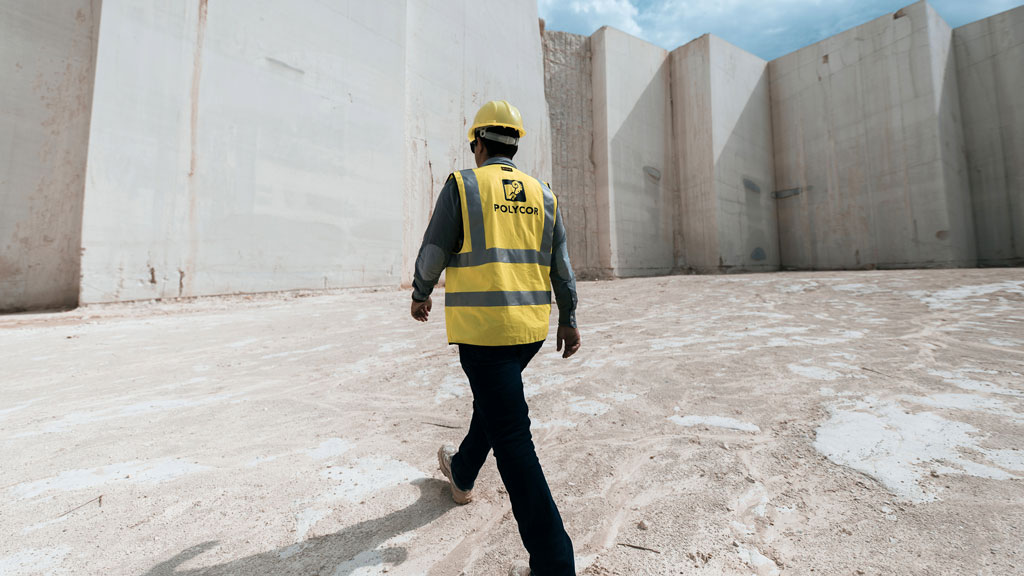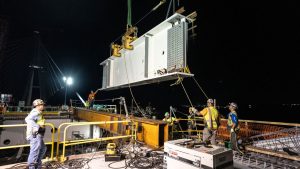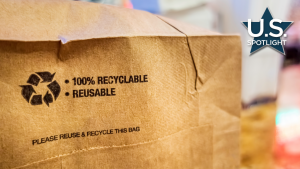The world’s largest natural stone quarrier, Quebec City-based Polycor, has thrown down the gauntlet in its sector by pledging to become carbon neutral by 2025.
The firm owns over 50 quarries and 20 manufacturing plants across North America and Europe.
Polycor CEO Patrick Perus explained recently the pledge, while bold, will not be as difficult to achieve as might be thought because its basic product, stone, is a natural and “God-given” building material that requires no carbon to create, unlike that of its competitors.
“It’s a bold statement but it’s not so difficult because we don’t generate that much CO2,” said Perus. “We have to work, it’s obvious, but it’s not as big an undertaking as let’s say the concrete industry making the same commitment.”
The impact on its profits and losses line will not be huge, Perus said. It will require an increase in Polycor’s capital expenditures of 20 per cent for the next five years.
“So we decided to make the move and we believe the company along with the customers can swallow the very little extra cost.”
The construction and transportation sectors create 65 per cent of the world’s CO2 emissions, Perus said, and so they bear a major responsibility to become greener. Polycor believes that path lies in using less energy-intensive materials such as steel and concrete and more natural products like wood and stones such as granite, marble and limestone.
Stone has been used as a building material for the first 99 per cent of human history, Perus said, with energy-intensive products like concrete and steel coming to the fore relatively recently.
“People don’t think about stone, it looks like a product from the past,” said Perus. “The best way for us to send our message is to say we’re green, because stone is a product from nature. You don’t need to burn gas or oil to make it and it’s very durable. The best way to be credible in our message was to commit to be carbon neutral in 2025.”
To achieve its goal, Polycor aims to increase its use of renewable energy so that 75 per cent of its power comes from renewable sources; reduce its carbon-based fuel use by installing electrical charging at plants and purchasing new vehicles with alternative fuel sources; seek production efficiencies, reducing packaging, minimizing chemical use and boosting recycling and reuse; and adopt a range of carbon-offsetting activities such as pursuing a tree planting campaign.
Polycor has also announced the appointment of 15 sustainability champions to identify more sustainability solutions, it previously adopted a practice of using closed-system rainwater and it is committed to increased automation.
“When you grab the bull by the horns and say we’re going to do it…then you think about how you do things along the way,” Perus said.
“You become more efficient, you invest in new equipment, you reduce maintenance, and also you make the environment better for your workers.”
Polycor considers a manufacturing facility it owns in Indiana as a second headquarters in addition to its flagship in Quebec City. Bloomington, Ind. is a major source of the firm’s limestone. Quebec is a major base with numerous quarries.
The challenges of reaching carbon neutrality are different in each jurisdiction, Perus noted, with Quebec supplying clean power through its hydroelectric sources and France generating clear power through its nuclear plants but some U.S. sites operating in coal-burning regions. He said there are no plans to discontinue use of quarries in less green jurisdictions, but it is obvious that in the future firms will be looking for clean districts in which to do business.
“When you go into certain states in the U.S. where they rely mostly on fossil fuels for the grid, we have to make an extra effort there, either by buying green energy from them or generating solar power for our own need,” he said.
In the end, Perus said, the sustainability efforts of the private sector to reach Paris climate goals and others must be supplemented by hard government policy.
“Economic constraint will always drive decisions,” he said. “If you don’t tax carbon, if you don’t put requirements in cities to have a low carbon footprint and building materials, if you don’t demand green infrastructure…it will never be seriously addressed.
“It’s moving in the right direction. I’m hopeful, but we’re not there yet.”
Follow the author on Twitter @DonWall_DCN.











Recent Comments
comments for this post are closed